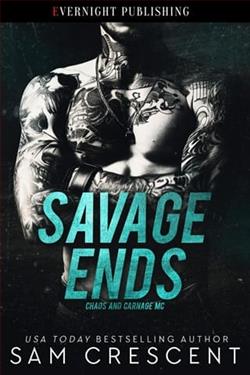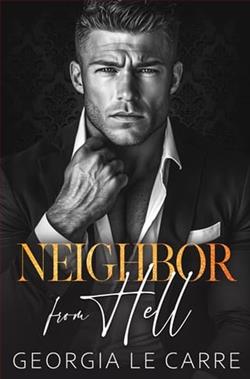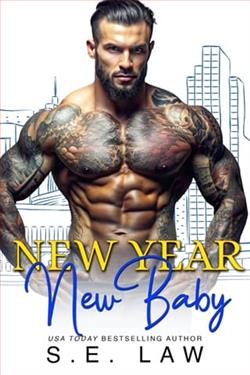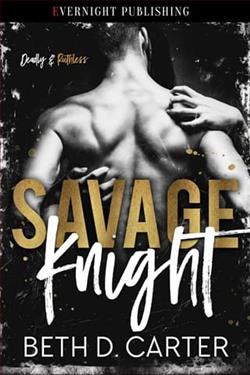Page 74 of The Devil's Canvas
The ground lurches. Not a tremor. Not a warning.
A Hellquake.
The first impact slams through the floor like a shockwave, jagged fractures splitting across the obsidian marble, crawling up the walls in chaotic veins of destruction. The entire estate groans in protest, the ceiling trembling, the air itself vibrating as though it’s trying to pull away from whatever is coming.
The world tilts.
Gravity wavers. The very laws that bind Hell together tremble beneath an unseen force, the space within the estate twisting—not just the physical structure, but something deeper, something more fundamental. A pulse of power surges upward from the core of Hell itself, warping reality like a tidal wave breaking against the fragile dam of existence.
The lights die.
Screens flicker once. Every automated system glitches, surges, and collapses into an unnatural, suffocating dark.
Not just the absence of light.
Something worse.
A void. A presence so vast it doesn’t just erase light—it consumes it. The silence that follows is not empty. It is waiting.
With no warning, the shadows ignite. Not with fire. Not with light. With something else.
Darkness bleeds from the floor, twisting, writhing, coiling up from the marble in shifting tendrils of living void. It stretches upward, spiraling into towering columns that breathe, pulsing with an energy that does not belong to this world—or any world.
And from that abyss, they manifest.
The Infernal Council.
They do not arrive—they are simply here, as if they were never absent to begin with. Their presence does not fill the room—it consumes it.
They are not men. Not demons.
They are something else.
Their robes are woven from a darkness so deep it refuses to reflect light, shifting like liquid shadow, like something that has never been bound to a single form. The hems never touch the ground. They leave no trace of their passing—because they are not bound by the laws of movement as we know them.
And beneath their hoods—
Nothing. Not absence. Something worse.
A bottomless abyss where faces should be, a void so vast it feels like it could swallow the very concept of sight itself. Shapes coil and twist in the darkness—sometimes eyes, too many, blinking in and out of existence like flickers of dying stars. Other times, just an endless black, consuming everything it touches.
But the worst part?
I know they are looking at me.
Not just watching. Measuring. Judging. Deciding.
Even my father—Evander Duvain, whose name alone bends lesser demons to their knees—does not speak. My mother does not move. My aunt and uncle, so rarely disturbed, so rarely impressed, do nothing. No one breathes.
Not because they can’t. But because they do not dare.
One of them steps forward. The space around them distorts, warping inward, the fabric of the room twisting to accommodate something that should not exist. Reality itself bends to make room for them, or risk breaking entirely.
"Julian Duvain."
Not a greeting.
A sentence.















